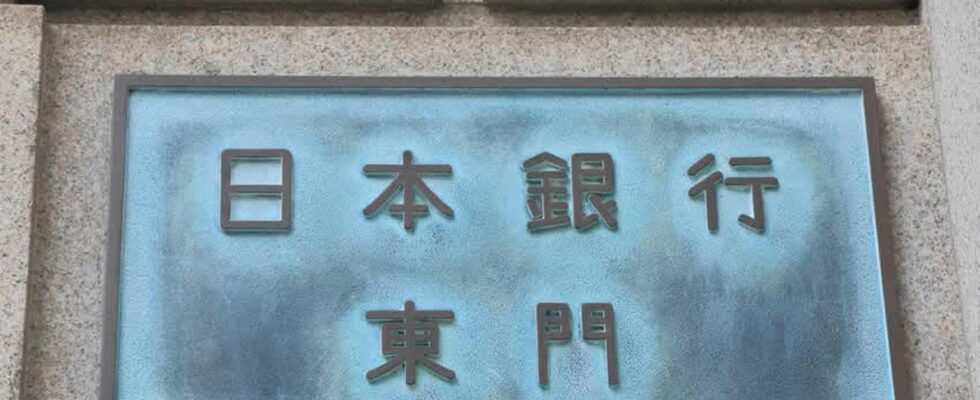Published on Nov 22, 2023 at 12:35 p.m.
by Satoshi Sugiyama
TOKYO, Nov 22 (Reuters) – The Bank of Japan (BoJ) will end its negative interest rates next year, shows a Reuters survey of economists who are overwhelmingly convinced that the institute of is moving closer to the end of its ultra-accommodating monetary policy, which runs counter to that of other major central banks.
BoJ Governor Kazuo Ueda must deal with the difficult equation of exiting the monetary policy pursued over the past ten years without causing market turbulence or compromising a fragile economic recovery.
While none of the 26 economists polled by Reuters from November 15 to 20 forecast any changes at the BoJ’s December meeting, many anticipate that the negative rate policy, which has fixed the short-term deposit rate in Japan at -0.1%, would come to an end in 2024.
According to the survey results, 22 out of 26 economists, or 85%, said the BOJ would end this policy by the end of next year. This rate is up compared to the October survey (63%) and that of September (52%).
Of the 26 economists surveyed, only four said they were counting on “2025 or later”.
At an October meeting, the BOJ relaxed its yield curve control (YCC) policy, redefining the 1% fluctuation band on ten-year bond yields as an “upper bound” rather than as a fixed ceiling and ended its commitment to defend this limit with offers to buy bonds in unlimited quantities.
According to sources, after this easing, the BoJ now aims to end its negative interest rate policy and bring short-term rates to zero.
Nearly 85% of economists surveyed expect the central bank to end its YCC policy, while the rest believe it will change this control again, the survey shows.
EYES ON NEXT YEAR
Of the 22 economists surveyed who chose 2024 for the end of negative rates, more than half, or 12, opted for the April 25-26 meeting. Three chose the month of July, two the month of June and one the month of October.
Four economists – Capital Economics, Dai-ichi Life Research Institute, Mitsubishi UFJ Morgan Stanley Securities and T&D Asset Management – estimated that this change would take place as early as January.
By then, there will be more clarity for the BoJ to decide the fate of short-term rates taking into account inflationary pressures and the trend on wage negotiations, notes Hiroshi Namioka, chief strategist and fund manager at T&D Asset Management.
“The negative interest rate will be ended as a ‘response to inflation’ if it is sustained or as a means of ‘continued easing’ if inflationary pressures appear to be diminishing,” he adds. According to Hiroshi Namioka, the BoJ could also explain that setting short-term rates at 0.00% is still easing.
QUESTIONS ABOUT SALARIES AND ECONOMIC MEASURES
The survey also showed that 74% of economists said they expected wage growth and salary increases on average for 2024 to exceed this year’s 3.58% at large Japanese companies.
On the other hand, only 65% think that such a trend will be observed in Japanese companies in general, particularly in small and medium-sized companies.
Furthermore, almost two thirds of economists, or 16 out of 25, considered it “very unlikely” that the government’s latest economic program would make it possible to increase the growth rate of the domestic product (GDP) to 1.2%.
Among the measures are a cut in annual income tax and other taxes by 40,000 yen ($242.58) per person and payment of 70,000 yen to low-income households. The program’s unpopularity, including in opinion polls, is cited as one of the factors in the fall in support for Prime Minister Fumio Kishida.
“One-off income tax reductions would have a very limited stimulus effect,” underlines Chiyuki Takamatsu, chief economist at Fukoku Mutual Life Insurance. (Reporting Satoshi Sugiyama, investigation carried out by Veronica Khongwir and Sujith Pai, French version Claude Chendjou, edited by Blandine Hénault)
